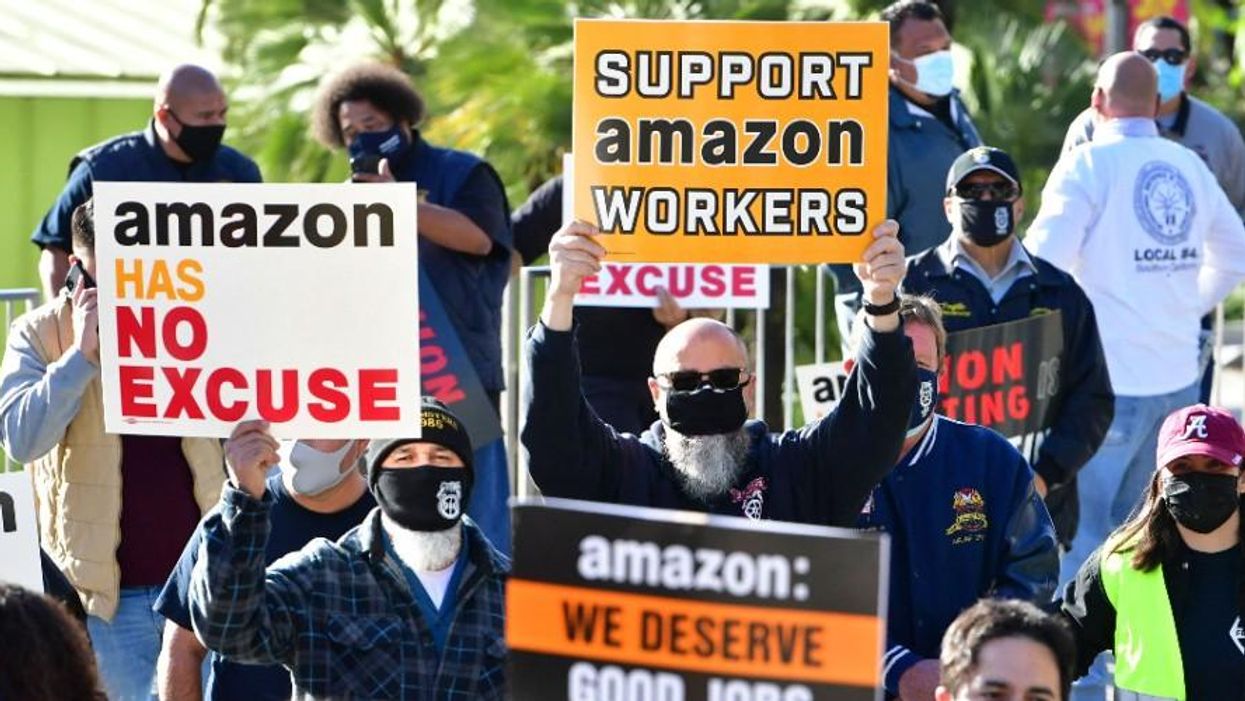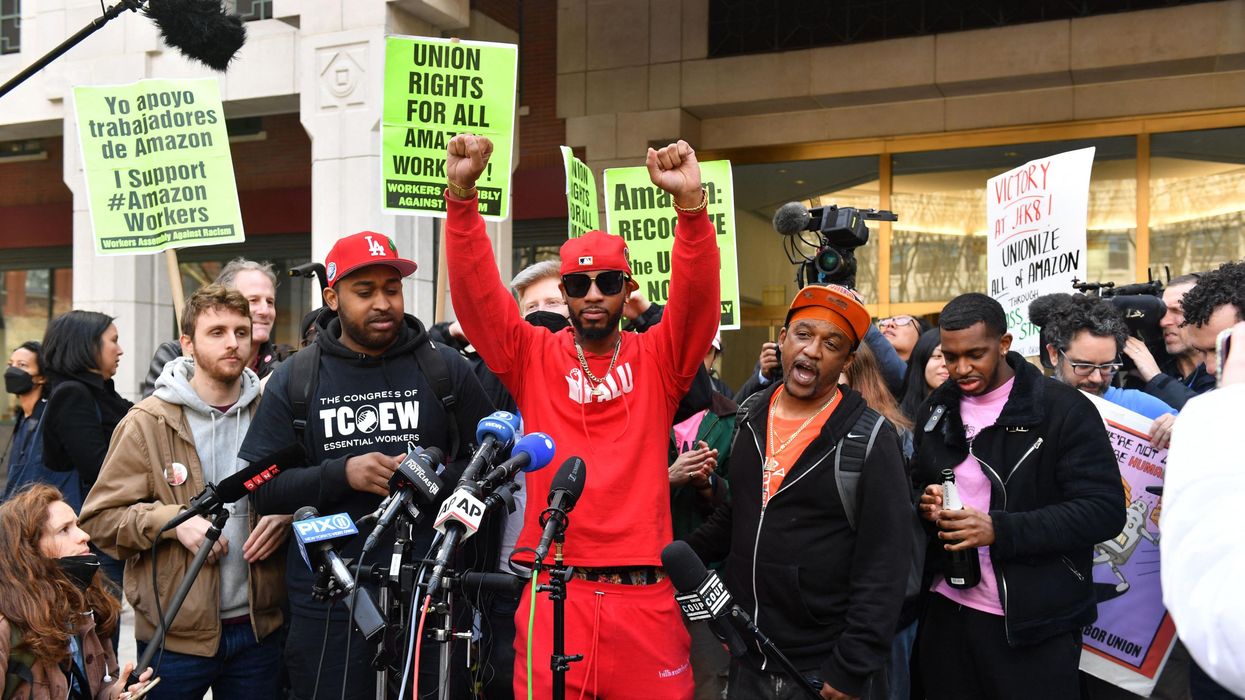Report Details How Rich CEOs Avoid Taxes on Retirement Funds as Their Employees Struggle
"Nothing but the power of corporate leaders to rig rules in their favor can explain this double standard."
Millions of people in the United States have little to nothing in retirement savings, a consequence of low-wage jobs that give workers minimal room to stash money away.
Meanwhile, at the end of 2021, the nation's top CEOs held an estimated $9 billion in rapidly growing special retirement accounts that aren't available to their employees—a double standard established by the U.S. tax code.
That double standard is the subject of A Tale of Two Retirements, a new report published Thursday by the Institute for Policy Studies (IPS) and Jobs With Justice. The report says that while "ordinary employees with access to 401(k) plans face strict limits on the amounts they can set aside, tax-free, for their golden years," highly paid executives of major corporations "have unlimited tax-deferred compensation accounts" known as top hat plans.
"The sections of the U.S. tax code related to employer-provided, tax-deferred retirement accounts impose one set of strict rules on ordinary workers and another set of far more flexible rules for corporate top brass," the report notes. "Employees with 401(k) plans face hard caps on the amounts they can set aside in these accounts every year. By contrast, Section 409A of the tax code allows top corporate executives to place unlimited amounts in special 'non-qualified tax-deferred compensation' accounts."
The funds in such plans are only taxed when they are withdrawn, allowing executives to reap the benefits of years of investment returns tax-free.
The new analysis shows that "at more than 20 low-wage employers, executives have sufficient deferred compensation funds to generate monthly retirement checks larger than their workers' median annual pay," pointing specifically to Walmart CEO Doug McMillon (who held over $169 million in his deferred compensation account at the end of last year) and former Home Depot CEO and current board chair Craig Menear (who has nearly $15 million in a deferred compensation account).
Home Depot employees aren't nearly as well-positioned for retirement. According to the researchers behind the new report, 53% of those eligible to participate in Home Depot's 401(k) plan have zero balances. Menear's top hat account balance is "enough to generate a monthly retirement check three times larger than the company’s median worker pay of just $30,100," the report notes.
The executive with the largest top hat account among S&P 500 company heads is Paul Saville, CEO of the homebuilding giant NVR, Inc. At the end of 2022, Saville held $488 million in his deferred compensation account—which could yield $3 million a month in retirement checks for the rest of his life.
"That's 1,513 times as much as a typical American retiree could expect to receive in monthly Social Security and 401(k) benefits," IPS and Jobs With Justice note.
Sarah Anderson, global economy director at IPS and a co-author of the new report, said that "there's no rational argument for allowing wealthy executives to shelter unlimited amounts of compensation from taxes while ordinary workers have strict limits on their annual 401(k) contributions."
"Nothing but the power of corporate leaders to rig rules in their favor can explain this double standard," Anderson argued.
"Perhaps most importantly, we need to expand Social Security, the key pillar for retirement security for most Americans, particularly low- and moderate-income families who receive little to no tax benefits."
For workers under the age of 50, the annual 401(k) contribution limit is $22,500 in 2023—a ceiling that the overwhelming majority of workers with access to a 401(k) won't hit.
"Nationwide, just 35% of working-age adults have tax-deferred 401(k)-type defined contribution plans through their employer and another 13% have defined benefit or cash balance plans. Some 42% of Americans age 56-64 have zero retirement account savings, according to the U.S. Census Bureau," the new report observes. "Americans who are unable to save for retirement need to rely on Social Security, which pays an average monthly benefit of $1,784, as of March 2023."
The report adds that while companies "often match a portion of employee 401(k) contributions," that benefit is "meaningless for the many low-wage workers who cannot afford to set aside any of their wages."
Furthermore, roughly half of U.S. workers in the private sector have no access to an employer-provided retirement plan.
"For decades now, large U.S. corporations have been making workers' retirement futures less secure by abandoning traditional pensions in favor of 401(k) plans," the report points out. "In 1984, more than 30 million Americans had defined benefit pensions through which employers bore the financial risks for their workers' retirement security. By 2020, that number had declined to just 12 million, and private sector workers were approximately 3.5 times as likely to have a defined contribution plan as a traditional pension."
IPS and Jobs With Justice highlight a number of potential policy changes that could help combat the stark and worsening retirement divide between ordinary workers—who are facing a full-fledged retirement income crisis—and executives, including changes to the tax provisions that let rich executives shelter their compensation.
"Perhaps most importantly, we need to expand Social Security, the key pillar for retirement security for most Americans, particularly low- and moderate-income families who receive little to no tax benefits," the report states. "Funding for expansion could come from lifting the wage cap on payroll taxes so that CEOs and other high earners pay roughly the same share of their total income into the Social Security fund as ordinary workers."
Scott Klinger, report co-author and senior equitable development specialist at Jobs With Justice, said that "rather than giving corporate CEOs unfair special retirement tax benefits not available to those they employ, Congress should eliminate the cap on payroll taxes paid by corporate executives so that Social Security benefits can be strengthened, especially for the 40% of American workers for whom Social Security is their sole retirement income."


